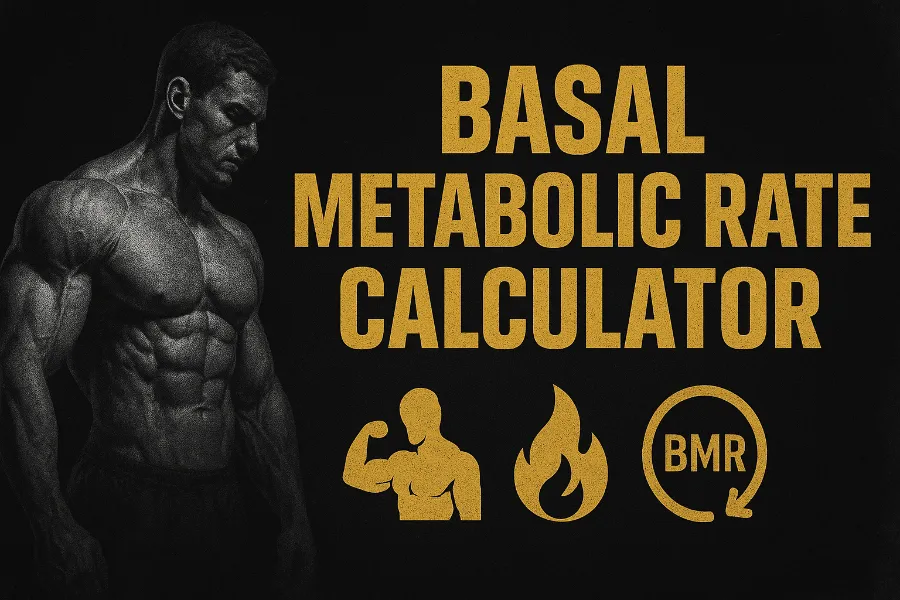BMR Calculator - Basal Metabolic Rate Calculator (Man/Woman)
Calculate Your Daily Calorie Needs at Rest
This tool helps you calculate your Basal Metabolic Rate (BMR) - the number of calories your body needs to maintain basic physiological functions while at rest. Understanding your BMR is essential for creating effective nutrition and fitness plans.
BMR Calculator
Calculate Your Basal Metabolic Rate
Key Points About BMR
- •BMR represents the minimum energy required for vital functions like breathing, circulation, and cellular production.
- •The Mifflin-St Jeor equation is considered more accurate than the older Harris-Benedict formula for most people.
- •BMR typically accounts for 60-75% of total daily energy expenditure in sedentary individuals.
- •Factors affecting BMR include age, gender, weight, height, muscle mass, and genetics.
- •BMR naturally decreases with age due to loss of muscle mass and metabolic changes.

How to Use the BMR Calculator
- 1Select your gender (male or female)
- 2Enter your age in years
- 3Enter your height in centimeters
- 4Enter your weight in kilograms or pounds
- 5Click "Calculate BMR" to get your results
- 6Review the results from different formulas for comparison
Frequently Asked Questions
What is BMR and why is it important?
BMR (Basal Metabolic Rate) is the number of calories your body needs to maintain basic functions at rest. It's important because it represents the minimum energy requirement and forms the foundation for calculating total daily energy expenditure.
Which BMR formula is more accurate?
The Mifflin-St Jeor equation is generally considered more accurate for most people as it was developed using more recent data. However, both formulas provide good estimates for healthy adults.
How does BMR differ from TDEE?
BMR is your calorie needs at complete rest, while TDEE (Total Daily Energy Expenditure) includes all activities and exercise. TDEE = BMR × Activity Level Factor.
Can I use BMR for weight loss planning?
BMR provides a baseline, but you should use TDEE for weight management. Never eat below your BMR for extended periods as it can slow metabolism and cause health issues.
How often should I recalculate my BMR?
Recalculate your BMR when you have significant weight changes (5+ kg), or every 3-6 months to account for age-related changes.